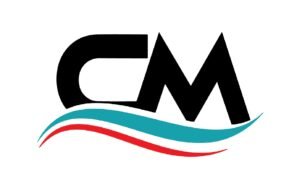At Crest Mechanical Corp, based in Surrey, BC, we understand the importance of properly installed sink drain plumbing. Whether you’re upgrading your kitchen or bathroom, dealing with a leak, or installing a new sink, having a clear guide can save time and prevent costly repairs. In this article, we’ll walk you through the step-by-step process to ensure your sink drain plumbing is installed correctly.
Understanding the Sink Drain System:
A sink drain system might seem complex, but it consists of a few essential components:
- Drain Flange: The visible part of the drain where water flows out.
- Tailpiece: A pipe connecting the drain flange to the P-trap.
- P-Trap: A curved section of pipe that prevents sewer gases from entering your home.
- Wall Pipe: Connects the P-trap to the home’s drainage system.
Understanding these parts helps you identify where potential leaks or clogs might occur.
Tools and Materials Needed:
Before starting, gather the following tools and materials:
- Adjustable wrench
- Plumber’s putty
- Pipe tape
- Bucket
- Pliers
- Sink drain kit
- PVC pipes
- Slip nuts
- Washers
These items are essential for a smooth installation process.
Preparing for Installation
- Shut off the water supply to the sink.
- Clear the workspace under the sink to provide enough room to work.
- Remove any existing plumbing if you’re replacing old parts.
- Double-check that all necessary tools and materials are on hand.
Step-by-Step Installation Process
- Install the Drain Flange: Apply plumber’s putty around the flange and press it into the sink’s drain hole. Secure it with a locking nut from underneath.
- Attach the Tailpiece: Connect the tailpiece to the bottom of the drain flange.
- Install the P-Trap: Attach one end of the P-trap to the tailpiece and the other to the wall pipe.
- Secure Connections: Tighten all slip nuts by hand and then gently tighten with a wrench.
- Test for Leaks: Run water through the sink and check all connections for leaks.
Troubleshooting Common Issues
- Leaking Connections: Ensure slip nuts are properly tightened.
- Misaligned Pipes: Adjust the tailpiece or P-trap for better alignment.
- Odors from the Drain: Check if the P-trap is installed correctly and holding water.
Maintenance Tips for Sink Drains
- Regularly clean the sink drain to prevent buildup and clogs.
- Periodically check slip nuts and washers for wear.
- Use a drain strainer to prevent debris from entering the pipes.
Conclusion:
Proper installation of your sink drain plumbing ensures a leak-free and odor-free environment. At Crest Mechanical Corp, we’re here to help with your plumbing needs in Surrey, BC. Whether you’re tackling a DIY project or need professional assistance, we’ve got you covered.

